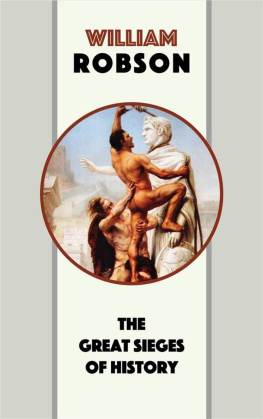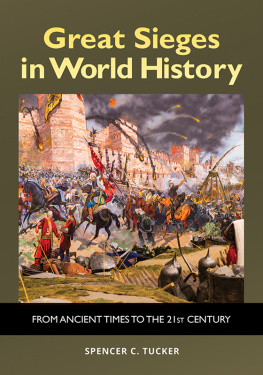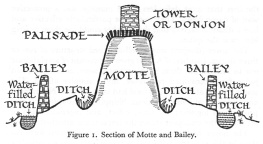PREFACE.
Late events have proved that, notwithstanding the dreams of visionary philosophers and the hopes of philanthropists, the Millennium is not yet arrived; the lamb cannot yet lie down in peace with the lion. Science has performed miracles to procure comforts and luxuries for man; literature and art have exerted their genial influence over his life and manners; and commerce has brought nations, geographically remote from each other, into the most intimate relations. And yet the roots of all evilsinterests, passions, and ambitionsare as actively alive in promoting discord, as at the darkest periods of the worlds history.
Encouraged by the evident advantages arising from the absence of war, a kindly but enthusiastic body of enlightened men came forth to preach a new description of crusade, a crusade for universal peace; and yet, years after the promulgation of this holy mission, a nation, by far the largest in geographical extent, thinks its time arrived, throws off the mask, and boldly avows that, while other peoples have been fostering plans of universal amity and brotherhood, it has been ever insidiously working out its schemes for the subjugation of all the rest to its arbitrary power.
The way in which Great Britain has met this, has been attended by a lesson which I trust she will never forget. It has proved to her, that if she is anxious to maintain the proud station which her patriots, sages, warriors, and merchants have raised her to, she must not only be a producer, a manufacturer, and a carrier; she must not only be intelligent and wealthy; she must be physically as well as morally strong, able to assert her own rights and support those of the weak and oppressed. Most lamentably has she suffered from not attending to this. Like another Quixote, she has rushed upon the enemy of humanity with the nobleness of her nature, unprovided with everything but wealth, courage, and faith in a good cause.
In his eloquent history of the Peninsular war, Sir William Napier had pronounced an emphatic opinion upon the state in which England was ever found at the commencement of a new contest; that her parsimony always left her bare of matriel, men, and leaders. To the neglect of this warning from a practical soldier, may we attribute most of our disasters in the Crimea. We have gone headlong into a game of which we seem to have known neither the moves nor the chances. Our generation had little more real knowledge of war, than schoolboys who fight with wooden swords under the standard of a pocket-handkerchief tied to a stick. It is not necessary for England to be essentially a warlike nation; it is not her part in the worlds progress; she is far more a creator than a destroyer; but she must ever preserve a consciousness of strength about her, that she knows will secure her from aggression and insult. And let no one imagine that this sense of strength will make her quarrelsome or unduly sensitive; every observer must know that the brave and powerful man is always the most peaceful: he fears nobody, and therefore he is slow to take offence.
I by no means wish to convert Britain into a Lacedmon; I would not have war to be the main business of our lives; but all should cheerfully contribute to the keeping up of such a military force as should make our country respected, even by those who are regardless of all but physical power. Then how commanding would be her march among nations! No people in the world is so morally strong; how divine then would be her influence, if others were made completely aware that she had the power to enforce right as well as to perceive it, to protect the injured as well as to pity them! Witness the advent of a good and strong man into a company of quarrelsome brawlers! it is like the appearance of Neptune above the waves when the storm was scattering and destroying the Trojan fleet.
But if it be necessary that we should always have a powerful armed force ready for action, it is equally important that that force should be acquainted with its trade. Lapped in peace, and surrounded by visions of wealth, Englishmen have said, We fear not war, we know we are always in possession of the sinews of it. But they have found themselves mistaken: a soldier can no more be made in a day by the influence of money, than a lawyer can; half a century of official duties will not make a general, nor will all the experiences of the hunting-field teach a dashing nobleman to lead on a charge of cavalry, with a due regard to human life or a judgment that may insure success. In all the disasters we have encountered in the Crimea, the courage and physical strength of our soldiers have signalized themselves, even beyond our hopes; but the readers of historyparticularly that part of it which relates to warperceive at once that our leaders have been wanting in that genius or knowledge which has distinguished great captains. With all our respect for the fine and gentlemanly qualities of the lamented Lord Raglan, we cannot subdue a conviction that if a Hannibal, an Alexander, a Csar, a Belisarius, a Turenne, a Cond, a Marlborough, or even a Suwarrow, had been at the head of such a gallant band, Sebastopol would have been subdued long ago. I do not think that either Buonaparte or his conqueror was eminently distinguished in this branch of the art of war. It is not often that a man can, like Clive, go from the desk to the battle-field, and at once become a great general; or that so young a man as Wolfe can take a Quebec. In guerilla or partisan warfare, unprepared but enthusiastic men sometimes make successful leaders; but to handle great masses of troops, or to besiege strongly-fortified cities, whatever a generals genius may be, he must have a training in the active practice of his profession.
It is not my place to write a dissertation upon the military art; I have only to draw attention to the knowledge of sieges, which form so prominent a part of it. Neither does it come within my plan, or the limits allowed me, to treat of the science of fortification; mine is but to employ the philosophy which teaches by example, and exhibit the Great Sieges of History. And valuable is the lesson to all,to the student of the art of war, to the soldier at the cannons mouth, to the minister who plans expeditions, and to the people who furnish the means for them. There is scarcely a siege in this volume barren of instruction; the principal of all being, that little can be achieved in these mortal conflicts by either besieged or besiegers, without energy constantly strained to the highest pitch, sleepless watchfulness, keen and anxious observation, consummate prudence, undaunted courage, firmness that is proof against attack or accident, great physical powers of endurance, and MILITARY GENIUS . When armies are opposed upon the wide field of a country, the game of chess may be played out by tacticians, or by great chance, success may be obtained by a dashing coup de main; but in important sieges, man is like the stag brought to bay, every faculty is forced into intense action, and the slightest error, the faintest relaxation, may produce irretrievable ruin, with such consequences as no other event presents. In great battles, armies may be annihilated; but in captured cities peoples are immolated and humanity is degraded by the wild indulgence of its most brutal passions.
It is more than curious, it is wonderful, to observe how many sieges will be found in this volume, whose fate has been decided by means with which the art of war, as taught in the schools, had nothing to do; and it is always the captain of the greatest genius who seizes upon every unforeseen discovery, any extraordinary accident, any suddenly-perceived natural advantage, to defeat the best-concerted and most scientific plans of his adversary: in one instance the fortune of an assault is changed by suspending a pig over the walls by a string fastened to his leg.












